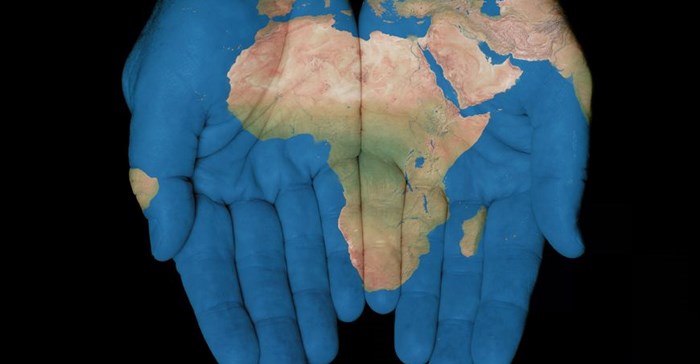Big business opportunities ahead for Africa - McKinsey

Six years ago when the McKinsey Global Institute first looked in detail at Africa’s diverse economies, almost all of them were experiencing accelerating growth. The picture today is more mixed. MGI’s new report ‘Lions on the move II: Realizing the potential of Africa’s economies’, finds that Africa’s economies’ growth paths have diverged.
Growth in the 11 economies accounting for 60% of African GDP - the continent’s oil exporters and the three countries involved in the Arab Spring (Egypt, Libya, and Tunisia) - slowed sharply. But the remaining economies generating 40% of African GDP accelerated their annual growth rate from 4.1% in 2000-10 to 4.4% in 2010-15. The overall outlook is positive, with the IMF projecting that Africa will be the world’s second-fastest-growing region in the period to 2020.
Four fundamentals are likely to underpin Africa’s economic growth:
- The fastest urbanisation rate in the world. Over the next 10 years, 187 million more Africans will live in cities - equivalent to half the US population today.
- The biggest working-age population in the world of 1.1 billion in 2034 - larger than in either China or India.
- The largest reserves in the world of many key natural resources (e.g., 60% of the world’s unutilised but potentially available cropland, and the largest global reserves of vanadium, manganese, and many others).
- The chance to leapfrog old technologies using mobile and digital (e.g., penetration of smartphones expected to hit 50% in 2020 vs 18% in 2015).
Big opportunities lie ahead as consumer and business spending continue to grow:
- The new report identifies opportunities for growth in African economies.
- Spending by consumers and businesses in Africa today totals $4 trillion. By 2025, the total could be $5.6 trillion.
- Household consumption is expected to grow by 3.8% a year to 2025 to reach $2.1 trillion. Spending on discretionary items is likely to grow fastest, reflecting an expanding African consuming class. Just under half of all consumption growth in the period to 2025 will be in 75 cities.
- Business spending is expected to grow from $2.6 trillion in 2015 to $3.5 trillion by 2025.
- Africa has an opportunity to nearly double manufacturing output from $500 billion today to $930 billion in 2025. Africa’s economies are no longer a story about exporting commodities - but about tapping into vibrant domestic demand. Three-quarters of this potential could come from Africa-based companies meeting fast-growing demand within Africa. Today, Africa imports one-third of food, beverages, and similar processed goods it consumes. The other one-quarter of the growth could come from more exports.
- Accelerated industrialisation could lead to a step change in productivity and the creation of six million to 14 million stable jobs over the next 10 years - making realising this a priority for governments.
Acha Leke, a McKinsey senior partner and report co-author, said: “Our new research shows how in coming years Africa will benefit from strong fundamentals, including a young and growing population, the world’s fastest urbanisation rate, and accelerating technological change. These will help drive rapid growth in consumer markets and business supply chains, and will offer opportunities to build large, profitable industrial and services companies.
Tapping Africa’s consumer markets will require companies to have a detailed understanding of income, demographic, and category trends. Thriving in business markets will require businesses to offer products and develop sales forces able to target the relatively fragmented private sector. But what our research also shows is how much work needs to be done both by companies themselves and by Africa’s governments to translate opportunity into tangible economic benefits.”
MGI’s new database of corporate Africa - which we believe is the first of its kind - shows that the continent has 700 companies with revenues of more than $500 million, of which 400 companies have revenue of more than $1 billion. Africa’s large companies are growing faster and are generally more profitable than global peers.
However, Africa (excluding South Africa) has only 60% of the large firms one would expect if compared with other emerging regions. And average annual revenue of $2 billion is half that of the large firms in Brazil, India, Mexico, and Russia. No African-owned company is in the Fortune 500.
Africa’s top 100 companies have achieved success by developing strong positions at home; staying the course to build their businesses over decades; integrating what other companies would usually outsource; and investing in building and retaining talent. Further success is possible in six high-potential sectors with high growth, high profitability, and low consolidation: wholesale and retail, food and agri-processing, health care, financial services, light manufacturing, and construction.
Six priorities emerge from this research:
- Mobilise more domestic resources, taking bold steps to mobilise more of its own funding to finance development.
- Aggressively diversify economies, encouraging growth in high-potential sectors in close cooperation with business, based on a clear understanding of their countries’ comparative advantages.
- Accelerate infrastructure development.
- Deepen regional integration.
- Create tomorrow’s talent, ensuring that educational and training systems build work-relevant skills, and that students are aware of, and encouraged to enter, these vocations and that the private sector builds on best practice.
- Ensure “healthy” urbanisation, so that cities grow with the infrastructure required to make the biggest positive economic and social impact possible.
Delivering on these six priorities will require the vision and determination to drive far-reaching reforms in many areas of public life—and capable public administration with the skill and commitment to implement such reforms.